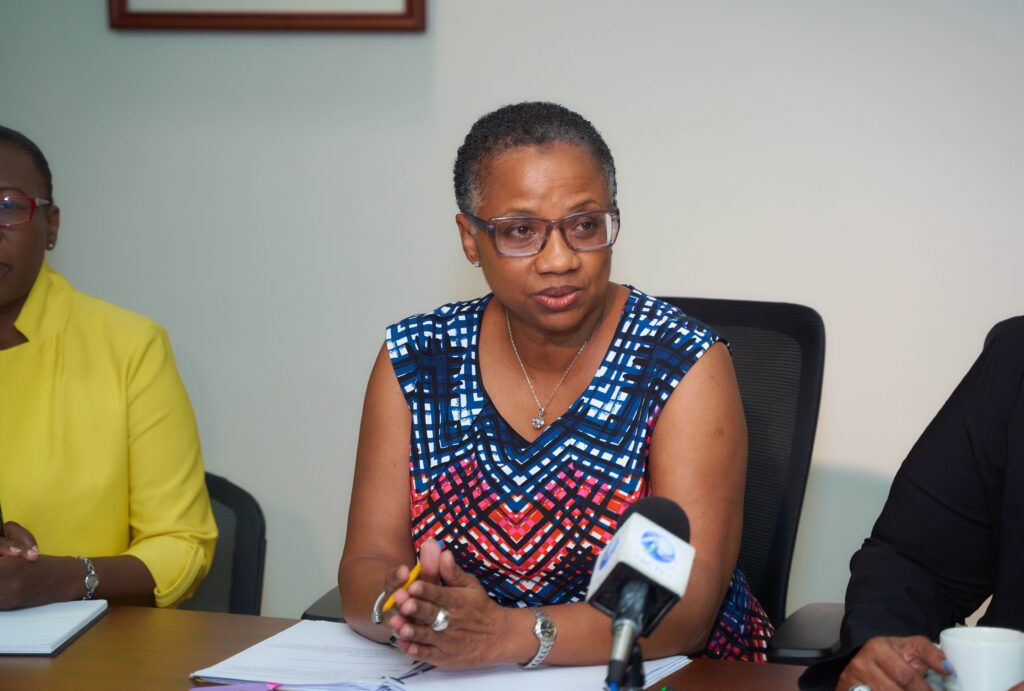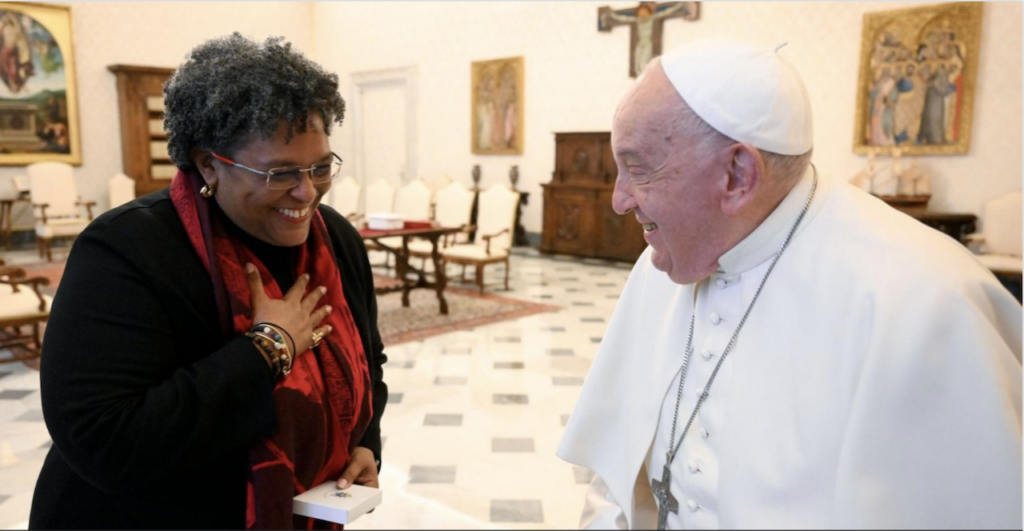Monday’s passage of Hurricane Beryl has underscored the urgent need for Barbados to enhance its climate resilience, according to Minister in the Ministry of Finance and Economic Affairs Ryan Straughn.
Speaking at the launch of the Barbados Environmental Sustainability Fund’s first call for projects on Friday evening, he highlighted the storm’s impact as a stark reminder of the island’s vulnerabilities.
“Given what we saw over the weekend, it brings home the reason why, under the Bridgetown Initiative, we’ve been championing and advocating for the establishment of a loss and damage fund and access to concessional financing for small island states like Barbados,” Straughn said.
The minister pointed out a significant shift in weather patterns affecting the island.
“It used to be that hurricanes approaching Barbados would typically only become Category 1 after passing the island. But Hurricane Beryl was already Category 3 before it reached Barbados. The cause? Warming ocean temperatures in the Atlantic,” he explained.
This change in hurricane behaviour has exposed weaknesses in the island’s infrastructure, Straughn noted.
“The Bridgetown Fishing Harbour was not designed to withstand the strength and turbulence generated by a Category 3 storm prior to reaching Barbados. Therefore, we must re-examine our resilience plans, investing in coastal defences with a different lens, recognising that conventional wisdom from 20 years ago is no longer applicable,” he said.
The storm’s impact extended beyond immediate infrastructure concerns, affecting key economic sectors. “There has been significant beach erosion on the west coast due to Hurricane Beryl,” Straughn reported. “We welcome people from all over the world to enjoy our beaches, and the west coast, which pays the bills for Barbados, must be protected.”
To address these challenges, the government is pushing for a collaborative approach involving both public and private sectors. Straughn emphasised the need for “innovative and resilient solutions”, particularly in the fishing industry, calling for engagement with “practitioners, the coastal zone management unit, and private sector stakeholders to ensure that our marine and terrestrial interests are met”.
The minister also detailed the government’s commitment to transforming Barbados into a “100 per cent sustainable large ocean state by 2035”. This goal is supported by the Barbados Environmental Sustainability Fund, established in 2022 as part of a debt swap arrangement.
Straughn stressed the need for swift action in the face of the climate crisis, saying the Barbados Environmental Sustainability Fund cannot be static in its approach.
“The government of Barbados is absolutely committed to ensuring that not just the objectives of the debt swap are achieved, but that we can see a better model for collaboration between the government and private sector, unlocking new investments and opportunities…. But we must move quickly to address the climate crisis,” he said.
Straughn concluded by calling on Barbadians to take an active interest in climate resilience efforts: “As the Barbados Environmental Sustainability Fund executes its work with the coastal zone and the marine spatial plan, we must encourage Barbadians to have a vested interest in the outcome. Everything we do onshore affects what happens offshore. We must work together, beach by beach, facility by facility, to ensure the best possible models for resilience and sustainability.”
The launch of the first call for projects is being promoted as a significant step in the government’s climate resilience strategy. Straughn emphasised the fund’s evolving role in light of recent events.
“It is important now that we realise that things have changed and will continue to change,” he noted. “The Barbados Environmental Sustainability Fund, having been established in 2022 during the debt swap, must also now evolve as government and stakeholders have to respond to what we believed then was urgent.”
The minister highlighted the importance of the marine environment in Barbados’ economic and environmental future. “As Barbadians, we generally tend not to fully appreciate or engage with our marine environment. The events over the weekend demonstrate how fragile and vulnerable we are as a small country. Building resilience is crucial to mitigating risks from global or natural events, as seen with Hurricane Beryl,” he said.
To address the challenges posed by climate change, particularly in coastal areas, Straughn outlined plans for public-private partnerships. (RG)
The post Hurricane Beryl exposes climate vulnerabilities – Straughn appeared first on Barbados Today.


